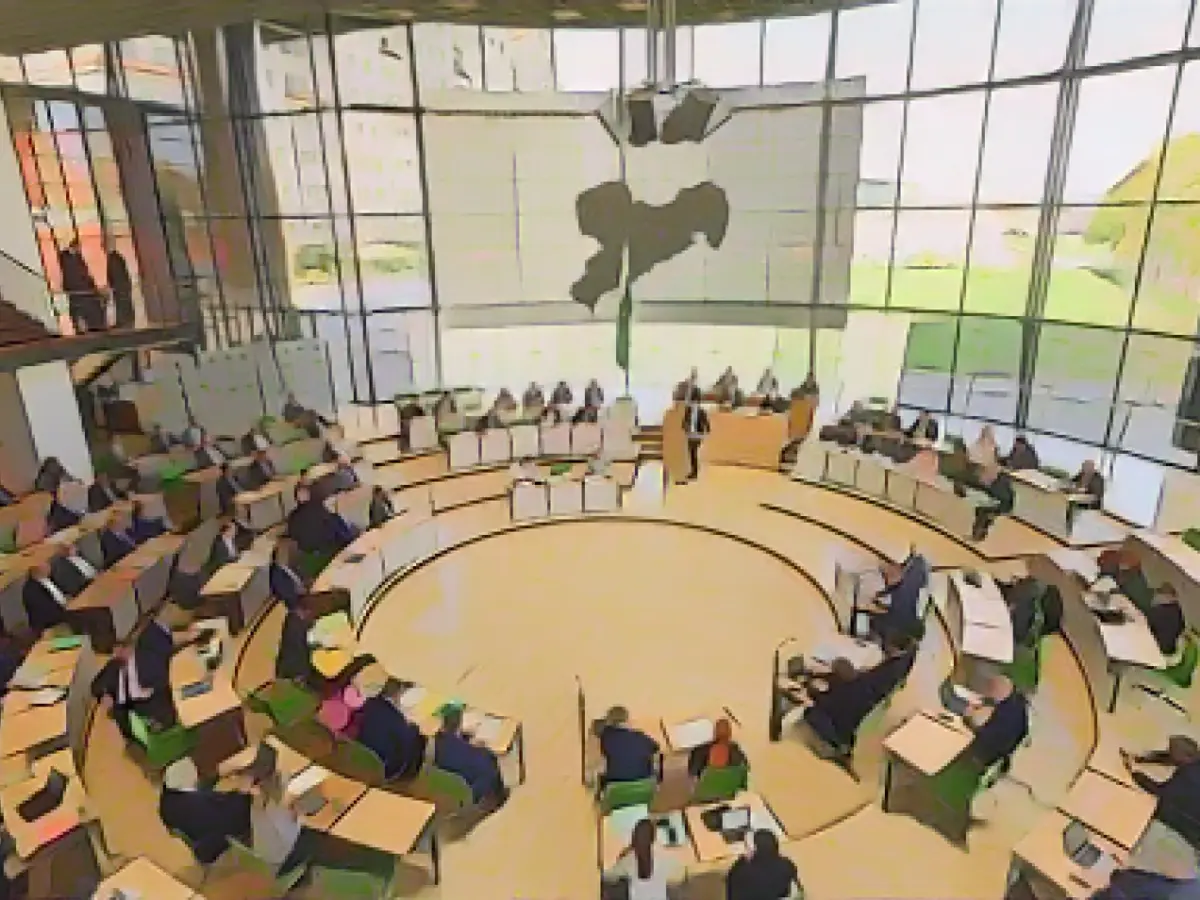Financial policy - Debate on the debt brake: calls for reform
The SPD, Green and Left parties have called for a reform of the debt brake at federal and state level. "The current debt brakes are clearly outdated," said SPD parliamentary group leader Dirk Panter in the state parliament on Wednesday. In their current form, they would become a brake on investment, the future and cohesion. A cross-party commission from the federal, state and local governments could and should develop a viable proposal. The Federal Constitutional Court's ruling is now sounding the alarm bell. "The enormous change we are facing can only be shouldered with investment from the state."
The Left Party warned against making cuts to the federal budget at the expense of the most vulnerable. "We already experienced this in the debate about Hartz IV 20 years ago: the unemployed and poor as the nation's scapegoats," said party leader Susanne Schaper. In addition, investments in education, health, climate protection, local authorities and future industries are in question. "The investment brake must be removed from the Basic Law and the state constitution. The world is laughing at this absurd German fetish, while the major economic nations are investing to advance digitalization and restructure the energy supply." Loans are essential to finance investments that pay off later, he said.
Green Party domestic politician Valentin Lippman believes that reform and investment are necessary in order to maintain Germany' s strength, innovative spirit and competitiveness as a business location. "The current regulation cannot answer the questions of the time and is damaging Germany - we are always ready to talk about adapting it, but not about abolishing it completely."
CDU and AfD rejected changes. "The debt brake is definitely necessary. This has also been confirmed by the constitutional courts. The state also needs clear repayment rules," explained CDU finance politician Peter Wilhelm Patt. Citizens are paying more taxes than ever before. "The state has to make ends meet with this money. If it wants more, it must tell citizens that they have to pay more taxes. But fulfilling wishes at the expense of future generations - without asking them - is dishonest."
"Tax revenues have risen massively in recent years. Nevertheless, the Free State has not learned to cope with this and to invest sufficiently. We therefore reject a relaxation of the debt brake at the present time," said AfD finance politician André Barth. Instead, the CDU-led state government must properly prioritize its tasks.
Read also:
- A clan member is punished here
- Traffic lawyer warns: Don't talk to the police!
- Will he be convicted as Jutta's murderer after 37 years?
- He also wanted to kill his cousin
- In Saxony, the SPD and other parties are advocating for a modernization of the debt brake within the state parliament, viewing the current regulations as impeding investment and progress.
- The SPD parliamentary group leader, Dirk Panter, argues that the debt brake, as it stands, is hindering investment, the future, and cohesion at both federal and state levels.
- The SPD, Green, and Left parties argue that the current debt brake should be reformed to allow for necessary investments to be made in critical areas such as education, health, and digitalization.
- The CDU and AfD, however, reject calls for reform, maintaining that the debt brake is essential and that the state should not burden future generations with increased debt without proper public consent.
- In the city of Dresden, the debate over the debt brake and fiscal policy is reflective of broader concerns about Germany's fiscal responsibility and its ability to invest in its future while balancing its finances.
- The Federal Constitutional Court's recent rulings on these issues have added a sense of urgency to the debate, emphasizing the need for a balance between fiscal responsibility and investment in order to secure Germany's economic and social future.
Source: www.stern.de








